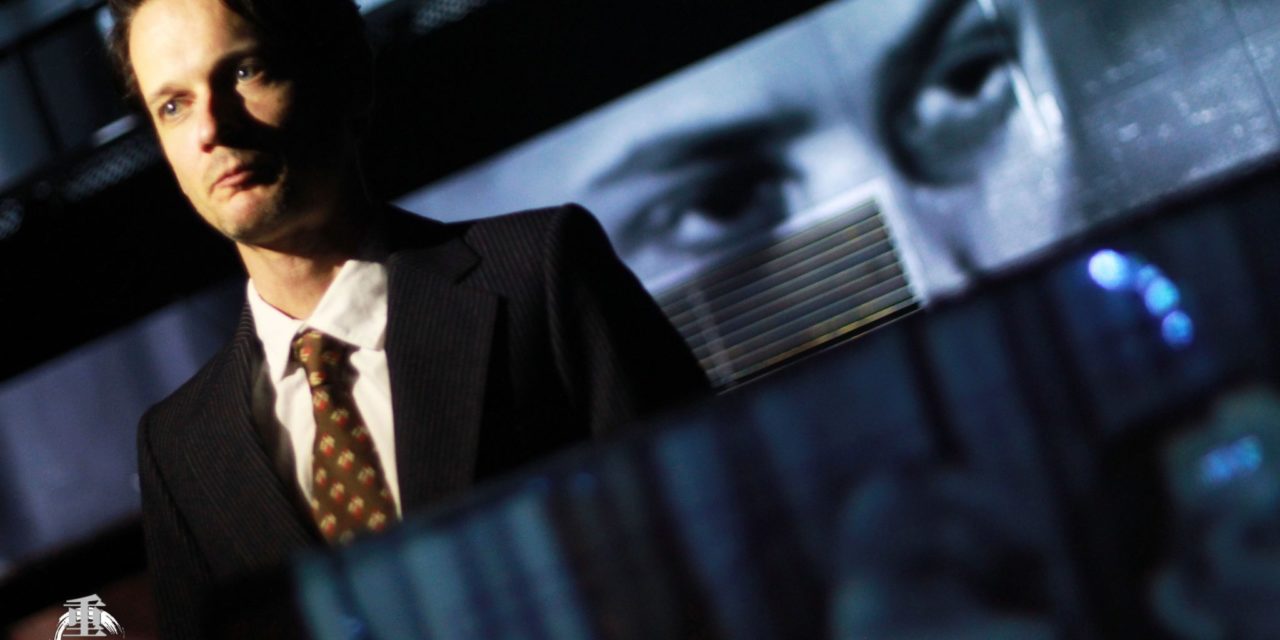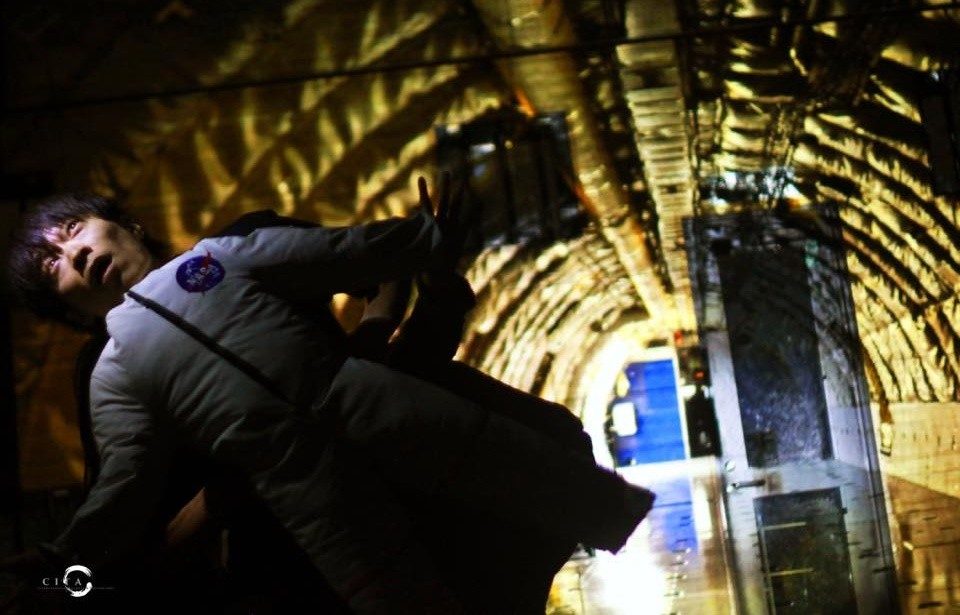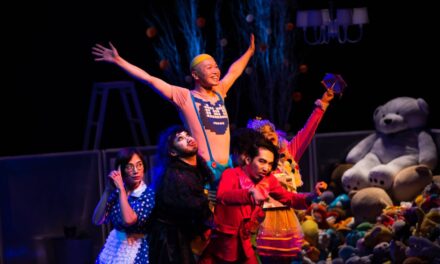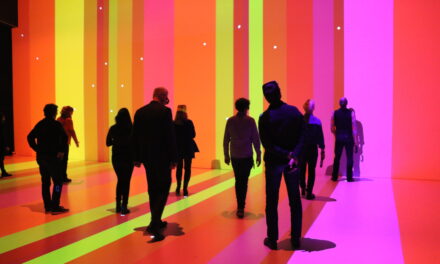You won’t be alone if you’ve never heard of the Tokyo-based International Centre for Theatre Arts, because few have seen any plays it has staged and anyway its focus is firmly on building a reputation outside Japan.
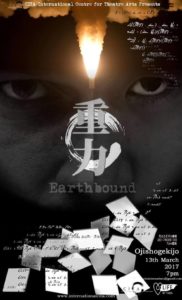 Founded in 2012 by New Zealand-born James Sutherland, the group has held workshops and staged occasional performances in South Korea, Colombia, Iran, and Japan in line with its strategy to primarily target markets abroad while skipping this country’s theater-business norms.
Founded in 2012 by New Zealand-born James Sutherland, the group has held workshops and staged occasional performances in South Korea, Colombia, Iran, and Japan in line with its strategy to primarily target markets abroad while skipping this country’s theater-business norms.
Yet as chance would have it, CITA — as Sutherland cites the group’s acronym based, he says, on its Spanish title of Centro internacional teatro artes — is set to present a rare one-off piece in Tokyo on March 13. Titled Earthbound, this is a work inspired by the lives of two brilliant men — Hideo Itokawa (1912-99), the so-called Dr. Rocket who pioneered Japan’s space program, and the American Bobby Fischer (1943-2008), who is often said to be the greatest chess player of all time.
So off I went to call on Sutherland, who co-wrote Earthbound with CITA members, at a studio in western Tokyo where he and six actors were energetically discussing those two men’s dreams and torments, then giving form to them through bodily expressions.
Now aged 38, Sutherland got an M.A. in theatre arts/directing in New Zealand and did a stint there as a stuntman followed by two years practicing aikido in Japan. Next he became a physical-theater instructor at drama schools in England before returning to Japan in 2012 — by then with a Japanese wife and their young son.
“重力/Earthbound is a play co-written and devised by CITA/International Centre for Theatre Arts. It was inspired by the collaboration during the 1950`s between Hideo Itokawa and his colleagues to pioneer rocket development in Japan. The play has two strands of narratives and present strong visual and physical theatre. Part documentary, part fiction, part dream, it interweaves the relationship of the eccentric Itokawa and his team with the story of Robert J Fischer, Americas youngest chess master and Miyoko Watai. Set against the back drop of the cold war, the catalyst for the space race, it attempts to illuminate the beauty of science, and explores the nature of and spirituality of gravity in its physical and metaphorical senses.” – Earthbound
These days, Sutherland’s life revolves around teaching English at three universities, running theater workshops, giving young people one-to-one acting lessons, and working as an instructor in the film industry — as well as his other CITA activities.
“Of course I went around and met lots of theater people, but the arts sector is very small and very hard to enter,” he said. “So it’s disappointing to think about the huge number of talented people who are not recognized for the contributions they could offer.
“Meanwhile at CITA my title is artistic director, but for me, theater is a team game and it can only survive through collaboration. Sometimes, though, someone has to make the final decision, and that’s my role.”
As for the creative process itself, Sutherland believes Japan’s education system is “just about remembering years and names for exams, whereas theater doesn’t have just one answer.
“We have to test constantly to find what we really need,” he insists. “It’s a constant process of failure, falling over both physically and philosophically.
“So as CITA’s main activity, we offer workshops giving people space and time to come and nurture their creative identity rather than having technique imposed on them.
“In that sense, I am a door-opener for young promising actors. I am an usher — that’s the best title for me.”
Sutherland said CITA is “sustaining at the moment,” suggesting times are hard but foundations are being laid for a brighter future. As to the infrequency of its stage productions here, he explained that it takes a long time to create the quality he’s satisfied with.
“If we followed the Japanese system,” he noted, “we would end up creating half-baked work quickly and spending lots of money quickly and we wouldn’t be giving audiences what they or we wanted.”
“Also, that instant, production-line kind of creative approach harms theater culture when there are so many competing entertainment forms these days.”
Then, drawing on his experience abroad, he added, “The arts and culture in England are heavily subsidized by the government, unlike in Japan, and as everything here is so expensive that drives up ticket prices. In addition, because of rushed production schedules, audiences often see under-rehearsed shows. So inevitably, many people never return to live theater.
“At first I wondered how to collaborate with Japan’s closed theater culture — but then I realized there are lots more opportunities for CITA elsewhere, doing teaching and workshops overseas.
“We found that’s much easier, and we made more money and got more exposure that way.”
Stressing his view that Japanese theater should be brave enough to open up to new possibilities and give chances to young artists, he concluded, saying, “I think audiences really like risky stuff they’ve never seen. So theater people need to take more chances and not stage programs just because they’re safe and/or good for sales.”
Earthbound runs March 13 at Hanamaru Gakushukai Oji Sho-gekijo, a five-minute walk from JR Oji Station. For details, visit internationalcita.com.
This article was originally posted on TheJapanTimes.com Reposted with permission of the author. Read original post here
This post was written by the author in their personal capacity.The opinions expressed in this article are the author’s own and do not reflect the view of The Theatre Times, their staff or collaborators.
This post was written by Nobuko Tanaka.
The views expressed here belong to the author and do not necessarily reflect our views and opinions.

